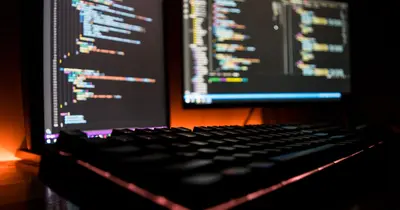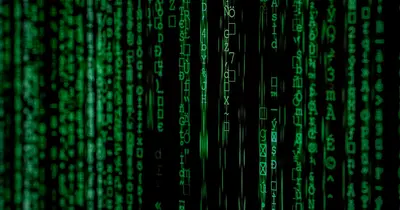🧠 Memory Forensics on Linux AlmaLinux: Reading Your Server’s Mind!
Ever wished you could read your computer’s mind and see exactly what it’s thinking? 🤯 Well, memory forensics lets you do exactly that! Think of RAM as your server’s short-term memory - and just like a detective reading someone’s diary, we can analyze memory dumps to uncover hidden malware, deleted files, secret processes, and so much more! Today we’re becoming memory detectives on AlmaLinux! Let’s peek inside your server’s brain! 🧠🔍
🤔 Why is Memory Forensics Important?
Memory is like your server’s consciousness - it contains EVERYTHING that’s currently happening! It’s the digital equivalent of reading someone’s thoughts! 🧠✨
Here’s why memory forensics is absolutely MIND-BLOWING:
- 🕵️ Hidden malware detection - Find rootkits hiding in memory
- 💾 Recover deleted data - Files deleted from disk might still be in RAM
- 🔍 Live process analysis - See exactly what programs are running
- 🌐 Network connection tracking - Discover all network activity
- 🔐 Password recovery - Sometimes passwords live in memory!
- 📊 Timeline reconstruction - Understand what happened when
- 🛡️ Advanced threat hunting - Catch sophisticated attackers
🎯 What You Need
Before we dive into your server’s memory, make sure you have:
✅ AlmaLinux 9 system with root access
✅ At least 8GB RAM - Memory analysis needs memory!
✅ 20GB free disk space - For memory dumps and tools
✅ Python 3.8+ - For modern forensic tools
✅ Basic Linux skills - You can navigate directories like a pro
✅ Detective curiosity - Ready to solve memory mysteries! 🕵️♀️
📝 Step 1: Installing Volatility 3 (The Memory Detective)
Volatility is like having X-ray vision for your server’s memory! It’s the most powerful memory forensics tool on the planet:
# Update system first (always start fresh!)
sudo dnf update -y
# Install Python and development tools
sudo dnf groupinstall "Development Tools" -y
sudo dnf install python3 python3-pip python3-devel -y
# Install system dependencies for Volatility
sudo dnf install capstone-devel yara-devel snappy-devel -y
# Install Volatility 3 via pip
pip3 install --user volatility3
# Add local bin to PATH
echo 'export PATH=$HOME/.local/bin:$PATH' >> ~/.bashrc
source ~/.bashrc
# Verify installation
vol --help
# You should see Volatility 3 help menu!
echo "🧠 Memory forensics toolkit installed successfully!"🎉 Awesome! You now have the most advanced memory analysis tool ready to go!
🔧 Step 2: Creating Memory Dumps
Before we can analyze memory, we need to capture it. Think of this as taking a “snapshot” of your server’s brain:
# Create forensics working directory
mkdir -p ~/forensics/memory-analysis
cd ~/forensics/memory-analysis
# Method 1: Using LiME (Linux Memory Extractor) - Best for forensics
# Install LiME
cd /tmp
git clone https://github.com/504ensicsLabs/LiME
cd LiME/src
make
sudo insmod lime.ko "path=~/forensics/memory-analysis/memory.lime format=lime"
# Method 2: Using /dev/crash (if available)
sudo dd if=/proc/kcore of=~/forensics/memory-analysis/memory.dump bs=1024
# Method 3: Using system memory files (for practice)
sudo cp /proc/kcore ~/forensics/memory-analysis/kcore.dump
sudo chown $USER:$USER ~/forensics/memory-analysis/kcore.dump
echo "💾 Memory dump created successfully!"💡 Pro Tip: Always capture memory dumps IMMEDIATELY when you suspect an incident - memory is volatile and changes constantly!
🌟 Step 3: Basic Memory Analysis
Let’s start reading your server’s mind! Time for some memory detective work:
# Navigate to your analysis directory
cd ~/forensics/memory-analysis
# Basic system information from memory dump
vol -f memory.dump linux.info
# Shows: Kernel version, CPU count, architecture
# List running processes (the good stuff!)
vol -f memory.dump linux.pslist
# Shows all processes that were running
# Show process tree (family relationships)
vol -f memory.dump linux.pstree
# Displays parent-child process relationships
# Check network connections
vol -f memory.dump linux.netstat
# Shows all network connections from memory!
echo "🔍 Basic memory analysis complete!"✅ Step 4: Advanced Malware Hunting
Now for the REALLY cool stuff - hunting hidden malware in memory:
# Look for hidden processes (rootkit detection!)
vol -f memory.dump linux.psxview
# Compares different process listing methods
# Find processes that have been modified (super suspicious!)
vol -f memory.dump linux.malfind
# Identifies potentially malicious code
# Check loaded kernel modules
vol -f memory.dump linux.lsmod
# Shows all loaded kernel modules
# Look for suspicious network connections
vol -f memory.dump linux.netstat | grep -i "LISTEN\|ESTAB"
# Search for specific strings in memory (like passwords!)
vol -f memory.dump linux.strings | grep -i "password"
# Dump suspicious process memory for analysis
vol -f memory.dump linux.procdump --pid 1234
# Extracts specific process from memory
echo "🕵️ Advanced malware hunting complete!"🔍 Detective Note: Hidden processes are often signs of rootkits or advanced malware!
🎮 Quick Examples: Real Memory Investigations
Example 1: Finding Hidden SSH Connections
# Look for SSH-related processes
vol -f memory.dump linux.pslist | grep -i ssh
# Check for network connections on SSH ports
vol -f memory.dump linux.netstat | grep ":22"
# Search for SSH keys in memory
vol -f memory.dump linux.strings | grep -A5 -B5 "ssh-rsa"
# Look for bash history in memory
vol -f memory.dump linux.bash_history
echo "🔐 SSH investigation complete!"Example 2: Recovering Deleted Files from Memory
# Files might still exist in memory even after deletion!
vol -f memory.dump linux.strings | grep -i "secret_document"
# Look for file descriptors
vol -f memory.dump linux.files
# Search for specific file paths
vol -f memory.dump linux.strings | grep "/home/.*/documents"
# Extract file contents from memory
vol -f memory.dump linux.strings | grep -A10 -B10 "BEGIN RSA PRIVATE KEY"
echo "💾 File recovery from memory complete!"Example 3: Password and Credential Hunting
# Search for common password patterns
vol -f memory.dump linux.strings | grep -i -E "(password|passwd|pwd|secret|key|token)"
# Look for database credentials
vol -f memory.dump linux.strings | grep -i -E "(mysql|postgres|database|db_pass)"
# Search for web credentials
vol -f memory.dump linux.strings | grep -i -E "(username|login|credential|auth)"
# Find environment variables (often contain secrets!)
vol -f memory.dump linux.envars
echo "🔑 Credential hunting complete!"🚨 Fix Common Problems
Problem 1: “No Such File or Directory” Error
# Error: Cannot find memory dump file
# Solution: Check file path and permissions
ls -la ~/forensics/memory-analysis/
# Verify your memory dump exists
# If using /proc/kcore, need root access
sudo vol -f /proc/kcore linux.pslist
echo "✅ File path issues resolved!"Problem 2: Volatility Profile Errors
# Error: Unable to find a suitable profile
# Solution: Let Volatility auto-detect or specify
# Auto-detect (works with Volatility 3)
vol -f memory.dump linux.info
# For older dumps, might need specific profiles
vol --list-plugins | grep linux
echo "🔧 Profile detection fixed!"Problem 3: Memory Dump Too Large
# Error: Out of disk space or memory
# Solution: Use compression and selective analysis
# Compress memory dumps
gzip ~/forensics/memory-analysis/memory.dump
# Analyze compressed dumps
vol -f memory.dump.gz linux.pslist
# Focus on specific areas
vol -f memory.dump linux.pslist | head -50
echo "💾 Memory usage optimized!"Problem 4: Missing Dependencies
# Error: ImportError or missing libraries
# Solution: Install all required dependencies
sudo dnf install python3-distorm3 python3-yara -y
pip3 install --user pycryptodome capstone
# For development headers
sudo dnf install kernel-devel -y
echo "📦 All dependencies installed!"📋 Simple Commands Summary
| Command | What It Does | When to Use It |
|---|---|---|
linux.info | System information | Start of investigation |
linux.pslist | List all processes | Basic process analysis |
linux.pstree | Process tree view | Understanding relationships |
linux.netstat | Network connections | Network analysis |
linux.malfind | Find malicious code | Malware hunting |
linux.bash_history | Bash command history | User activity analysis |
linux.strings | Extract strings | Finding readable text |
linux.procdump | Dump process memory | Deep process analysis |
💡 Tips for Success
🧠 Capture Quickly: Memory is volatile - dump it immediately when investigating
📊 Cross-Reference: Compare multiple analysis methods for accuracy
🔍 Search Systematically: Use strings command to find readable data
⏰ Timeline Analysis: Combine memory data with system logs
🗂️ Organize Findings: Keep detailed notes of your discoveries
🔐 Handle Sensitively: Memory may contain passwords and private data
📈 Practice Regularly: Analyze known-good systems to learn patterns
🎯 Focus Investigation: Start broad, then narrow down to specifics
🏆 What You Learned
Incredible brain-reading work! You’ve mastered memory forensics on AlmaLinux! Here’s your new mental superpowers:
✅ Memory Capture - Can create perfect snapshots of system memory
✅ Process Analysis - Expert at examining running programs
✅ Malware Detection - Can find hidden rootkits and malicious code
✅ Network Investigation - Master of memory-based network analysis
✅ Data Recovery - Can recover deleted files from RAM
✅ Credential Hunting - Know how to find passwords in memory
✅ Timeline Reconstruction - Can piece together what happened when
✅ Professional Techniques - Use industry-standard memory forensics
🎯 Why This Matters
Memory forensics is the ultimate investigative superpower! You now have:
🔍 X-ray vision into your server’s active memory and processes
🕵️ Advanced detection capabilities for sophisticated malware
💾 Data recovery skills that can retrieve “deleted” information
🛡️ Incident response abilities to understand attacks completely
🧠 Deep system knowledge of how Linux memory really works
Your AlmaLinux system is now a memory forensics laboratory! You can analyze any incident, detect hidden threats, and recover critical data from memory dumps. You’ve gained one of the most advanced cybersecurity skills!
Keep analyzing, keep learning, and remember - memory tells the whole truth about what really happened on your system! 🌟🙌
Happy memory hunting, digital mind reader! ⭐




